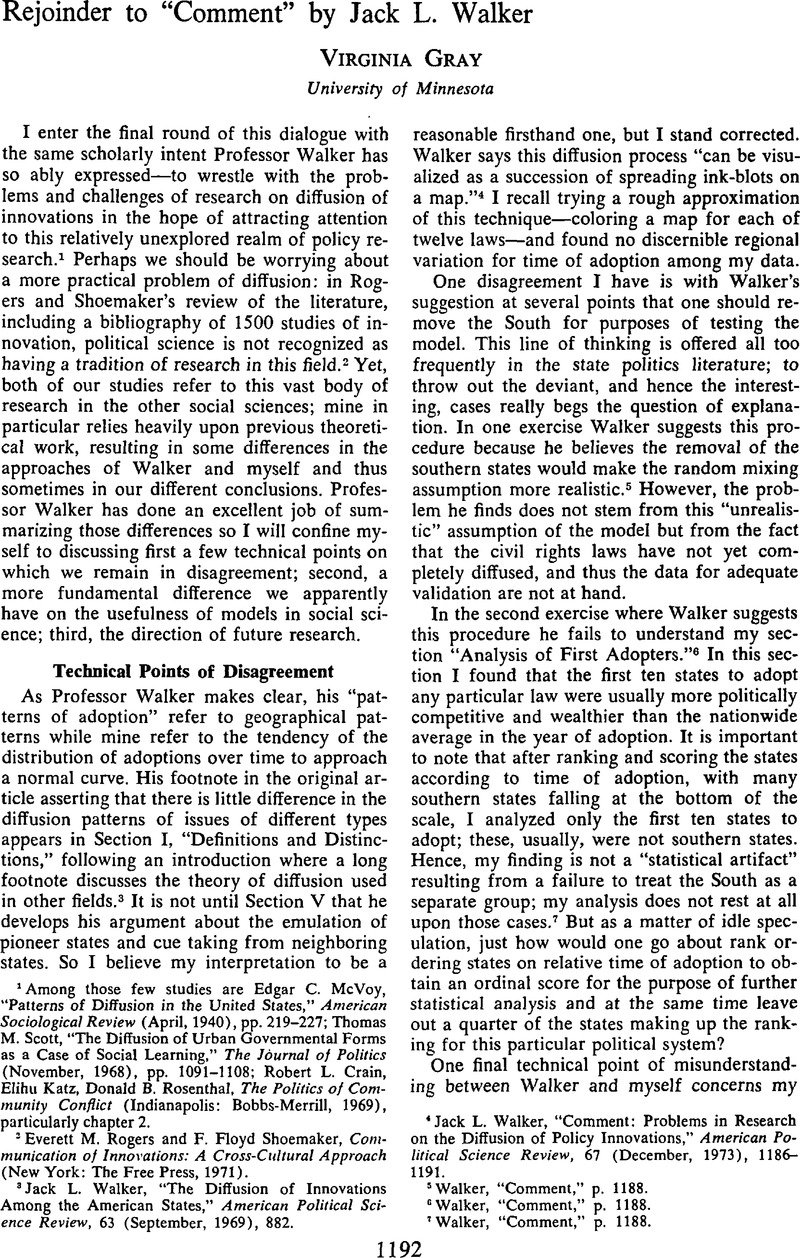Article contents
Rejoinder to “Comment” by Jack L. Walker
Published online by Cambridge University Press: 01 August 2014
Abstract

- Type
- Reply
- Information
- Copyright
- Copyright © American Political Science Association 1973
References
1 Among those few studies are McVoy, Edgar C., “Patterns of Diffusion in the United States,” American Sociological Review (April, 1940), pp. 219–227 Google Scholar; Scott, Thomas M., “The Diffusion of Urban Governmental Forms as a Case of Social Learning,” The Journal of Politics (November, 1968), pp. 1091–1108 Google Scholar; Crain, Robert L., Katz, Elihu, Rosenthal, Donald B., The Politics of Community Conflict (Indianapolis: Bobbs-Merrill, 1969), particularly chapter 2Google Scholar.
2 Rogers, Everett M. and Shoemaker, F. Floyd, Communication of Innovations: A Cross-Cultural Approach (New York: The Free Press, 1971)Google Scholar.
3 Walker, Jack L., “The Diffusion of Innovations Among the American States,” American Political Science Review, 63 (September, 1969), 882 CrossRefGoogle Scholar.
4 Walker, Jack L., “Comment: Problems in Research on the Diffusion of Policy Innovations,” American Political Science Review, 67 (December, 1973), 1186–1191 CrossRefGoogle Scholar.
5 Walker, , “Comment,” p. 1188 Google ScholarPubMed.
6 Walker, , “Comment,” p. 1188 Google ScholarPubMed.
7 Walker, , “Comment,” p. 1188 Google ScholarPubMed.
8 Walker, p. 1187.
9 Friedman, Milton, Essays in Positive Economics (Chicago: The University of Chicago Press, 1953), p. 15 Google Scholar. More strongly, Friedman asserts that “truly important and significant hypotheses will be found to have ‘assumptions’ that are wildly inaccurate descriptive representations of reality, and, in general, the more significant the theory, the more unrealistic the assumptions (in this sense),” p. 14.
10 Bartholomew, David J., Stochastic Models for Social Processes (London: John Wiley & Sons, 1967), p. 206 Google Scholar; Coleman, James S., Introduction to Mathematical Sociology (London: Free Press of Glencoe, 1964), chapter 17Google Scholar.
11 Walker, , “Comment,” p. 1189 Google ScholarPubMed.
- 15
- Cited by



Comments
No Comments have been published for this article.